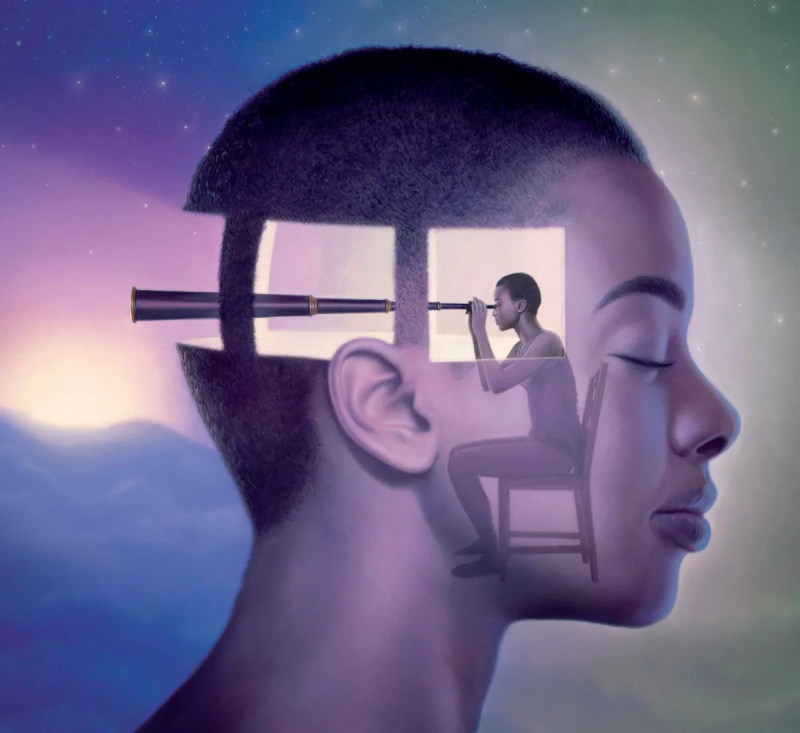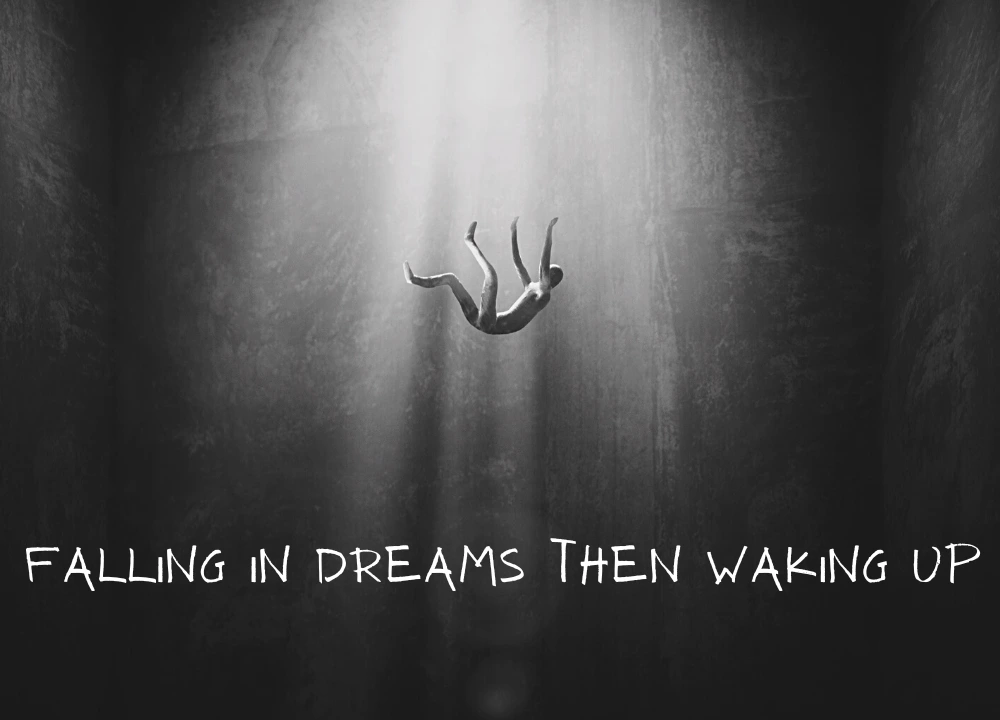Why Do We Forget Our Dreams? The Science of Dream Amnesia

It is immensely frustrating when you wake up from an interesting dream (or maybe you woke up on a cliffhanger) only to have it slip away the moment you open your eyes? You sit up in bed, hands pressed to your temples, focusing, as if that will miraculously bring back the lost. It makes you wonder why do we forget our dreams so quickly?
If that sounds familiar, this article is for you, someone who finds dreams fascinating and wants to understand why they vanish so easily and whether there’s a way to master the art of recalling them.
Why do we dream?

Dreams, like most abstract things, are a topic still without proper explanation. They occur in our sleep and constitute vivid visuals that elicit real emotions and reactions. Researchers from various branches of psychology have their own theories regarding the existence and function of dreams. However, the occurrence of dreams isn’t wholly unexplained. There are essential processes and functions of the brain in which dreams play an important role.
Emotional Wellbeing
Have you ever had a dream corresponding to a deep fear you never acknowledge while awake?
Through dreams, the brain addresses and brings to the forefront emotions we suppress during wakefulness. It employs abstract notions and imagery to process feelings it hasn’t been allowed to express.
Nightmares and dreams of reliving trauma also fall into this category. When we don’t feel our emotions as and when they arise, our brain lets them out in other ways. Sometimes, the dream may not even appear related to the incident, but the underlying emotion it elicits will be the same.
A Practice-Run of Life
Dreams are of all types and may be either completely similar or entirely unrelated to our everyday life. It has been stipulated that dreams are our subconscious mind preparing itself for situations and circumstances that it believes we might face in real life—sort of like how pilots first fly a stimulation plane. In dreams, we feel the situation is real, so our responses are genuine, yet there is no real, physical consequence. Alternatively, dreams may also be our subconscious trying to experience situations it desires to be in.
Dream Amnesia Explained

To understand why do we forget our dreams, we must first understand the types and stages of sleep.
Types of Sleep
With respect to how we experience sleep, it seems like one long stretch of darkness (except for when we’re dreaming). However, as per the neurological activities inside the brain, we go through multiple cycles in our sleep.
There are two main types: REM (rapid eye movement) sleep and NREM (non-rapid eye movement) sleep.
As its name clearly indicates, REM is the sleep in which our eyes can be seen moving beneath our eyelids. In REM sleep, our brain is almost as active as when awake. It is characterized by a deep sleep, with vivid and lucid dreams. Most dreams occur during REM sleep.
NREM is a lighter sleep characterized by subdued brain activity. Dreams occur even in this phase but differ in type and lucidity.
The Path to Deep Sleep
The first 90 minutes (about 1 and a half hours) of sleep is the light (NREM) sleep. It has 4 stages, each characterized by increases in depth. After this, there is no more than 10 minutes of REM, followed again by NREM. The cycle continues, and REM sleep slowly increases in time and intensity, its longest being around an hour.
Why do we forget our dreams?
During our time asleep, the brain is in a cleanse mode. It has been found that sleeping is essential to memory consolidation. Which means, when we are asleep, our brain categorizes, and manages our recent life incidents into long-term and short-term memory. A study funded by NIH (National Institutes of Health, USA) found that REM carries out the act of forgetting memories that it deems unnecessary.
Now ironically, while it does this, the neurons useful for remembering are inactive. During REM sleep, our brain is set such that it recollects the dreams only for about 30 seconds.
It’s like transferring files from one phone to another using Bluetooth or a phone clone. Our device still runs, but most of its attention is on the task at hand. It even asks us not to exit the page.
And so it is with our brains and sleep. The only difference is that if you want to remember, you must exit the page (i.e., wake up before the transition between REM and NREM occurs).
Is there a reason behind which dreams we remember and which we forget?
It is easier to remember our dreams during NREM, as the neurons connected to memory are more active then than in REM. Moreover, dreams that have a lasting impact on us, like nightmares, are more likely to be remembered than others.
An interesting observation is that when a dream is interrupted or when an external influence occurs (a doorbell, alarm, etc.), it helps in remembering the dream. This happens because the awake and asleep states merge here, leading to us remembering the dream as a connecting element to the interruption. Think of it as how the reminder technique works. Telling someone to remind you of something leads to you remembering it on your own when you see that person. But this is not always the case, as it depends on whether the transition from one cycle to the next has been made. If you’ve switched from REM to NREM without waking, the REM dreams are most likely lost.
Is there a way to remember Dreams?
Sure, there are ways to remember your dreams. Dreams are a subconscious doing. So, if you can drill your subconscious enough, you can remember and even alter your dreams (to some extent, of course).
Dream Recall Techniques
- Write the dream down.
Those dreams that you still recall (though vaguely) after just waking up? Note them down. Keep a diary or notebook beside your bed, and as soon as you wake up, try to recall as much as you can about the dream and note it down. It will surprise you how many of our dreams we remember, but because of their short-term nature, they soon vanish. Just recently, I was going through my Notes app and the ‘Dreams’ folder made me question whether I had really dreamed those dreams, so removed were they from my memory.
It might also happen that as you go about your day, some incident or thing reminds you of the dream you had that night. This happens because the same area of your brain gets reactivated when something similar occurs, and your brain instantly connects the two. Write these down in your diary, too.
- Describe the dream to a friend.
If writing it down isn’t possible, recount the dream to someone as much as you can remember. This helps solidify the dream in your memory.
- Tell yourself to remember.
Our subconscious works in mysterious ways. If you tell yourself before going to sleep, in all seriousness, that you will wake up at 8 AM the next day, you will.
Do the same with your dreams. Tell yourself, or as they say, tell your pillow, that you will remember your dreams, and you will. It isn’t so casual as saying it and it happening. It may take a few tries and a genuine conviction, but it will happen.
- Is this a dream?
If you are ready to be dedicated enough in your search for dreams, this is a technique used by researchers while studying dreams.
Throughout the waking day, ask yourself in specific intervals: Is this a dream? When it has become a habit, you will ask yourself this even in a dream, and then you’d be conscious enough to recognize it as a dream and recall it.
- Alter and guide your dreams.
It is indeed a skill to be able to master your dreams. One that requires practice. I was first acquainted with the idea in The Book of Disquiet by Fernando Pessoa. In one of his notes, he details the whole process of how one can be the master of one’s dreams. You only need to have the faint idea of a glass in your hand, and it shall appear. But to reach this level, the first thing you need to do is realize you are dreaming. Then, slowly try to surrender yourself to the dream, all the while being aware. It is from there that you can take hold of your consciousness.
Is it unusual to not remember any of your dreams?
Though dreams are elusive by nature, it is possible that there may be some other reason why you do not remember them. Various factors affect sleep and, thereby, dreams. The most common ones are stress, lack of proper sleep, medicines, and certain psychiatric conditions.
Sleep disorders like obstructive sleep apnea and narcolepsy may also affect the quality of sleep.
If you suspect any such conditions, it would be best to visit a doctor and find out.
Conclusion
Dreams can be both miserable and magical. Or maybe their mysterious nature makes them magical (and miserable)?
Whatever the cause may be, we love to dream and go on adventures that are far too implausible in our daily lives. Through this article, we briefly understood how sleep works and what cycles we go through while seemingly unconscious. Sleep helps in memory consolidation and storage, while dreams are a creative way for the brain to deal with emotions and create simulations based on its surroundings and knowledge. We saw various common and expert techniques helpful in recalling and retaining dreams. There is still much left unanswered; keep reading more of our such articles to learn more. Sweet dreams!





